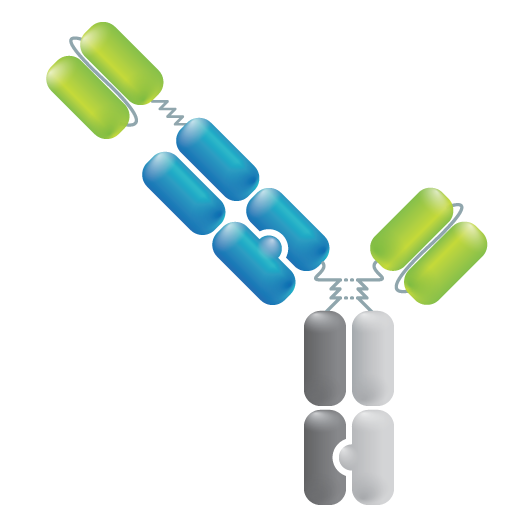Home – Technologies – T Cell Engagers
T Cell Engagers
Utilizing Azymetric™ to build differentiated and next generation T Cell Engagers

Home – Technologies – T Cell Engagers
Utilizing Azymetric™ to build differentiated and next generation T Cell Engagers


Harnessing our Azymetric™ technology to screen multiple bispecific 2+1 formats, geometries and paratope affinities for optimization of tumor selective T cell activation and antitumor activity with minimal cytokine release and on-target, off-tumor toxicities.
Harnessing our Azymetric™ technology to screen multiple trispecific formats, geometries and paratope affinities for optimization of T cell activation and antitumor activity, we developed two novel approaches to engineering differentiated next generation Trispecific T Cell Engagers.
2+1 Bispecific T cell Engager Engineering
Our approach of differentiated next generation 2+1 bispecific T cell engagers includes:
Trispecific Engineering
Our approach of differentiated next generation Trispecific T Cell Engagers with costimulation (TriTCE Co-stim) includes:
Our approach of differentiated next generation Trispecific T Cell Engagers with Checkpoint Inhibition (TriTCE CPI) includes:
We bring solutions to the biological problems faced by bispecific T Cell Engagers in the solid tumor microenvironment
Problem #1: Narrow therapeutic window and toxicities due to cytokine release syndrome and on-target off-tumor binding.
Our approach: To mitigate cytokine release and on-target off-tumor binding, we engineer different antibody formats that have low affinity T cell binding but leverage enhanced anti-tumor activity and tumor selectivity through avidity-driven tumor antigen binding.
Problem #2: Limited intratumoral T cell availability and T cell anergy in solid tumors
Our approach: We combine our antibodies with our TriTCE Co-stim technology to increase T cell fitness, survival, durability and proliferation via tumor-dependent T cell co-stimulation.
Problem #3: Immunosuppressive tumor microenvironment limiting T cell responses in solid tumors
Our approach: By customizing our antibodies with TriTCE CPI technology to increase T cell responses through simultaneous checkpoint blockade and avidity-driven binding we have an improved ability to navigate the tumor mircoenvironment.